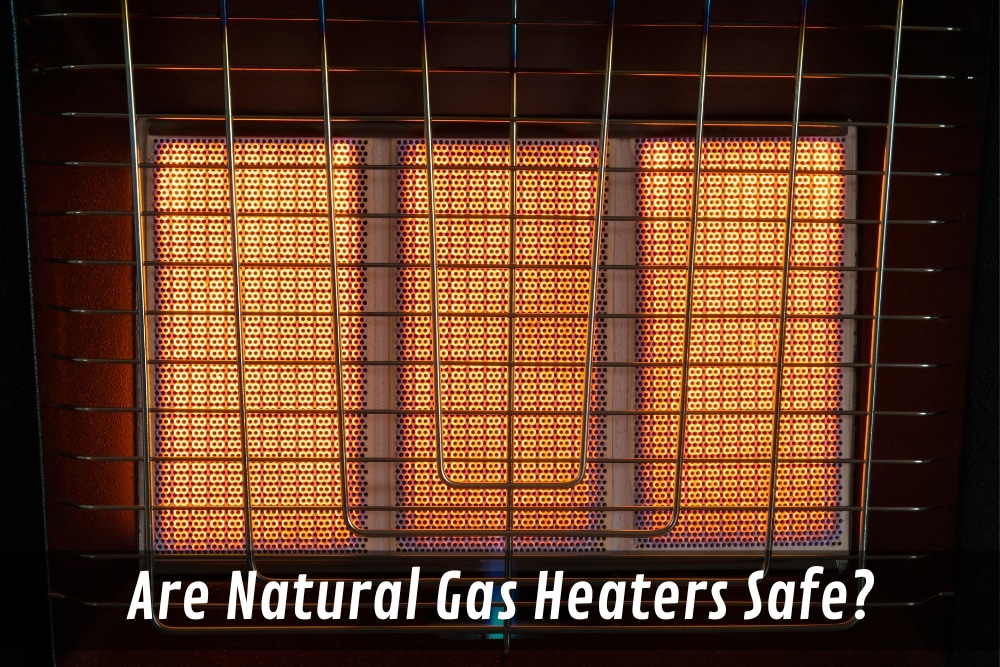Are natural gas heaters safe? Are you curious to know if natural gas is more energy-efficient than propane? With the variety of fuels available for heating systems, choosing the safest option commonly comes down to what type of fuel is used and how efficient that particular system is.
Natural gas is seen as one of the best alternatives when it comes to an energy-efficient source of heat. However, while natural gas heaters can be more cost-effective than electric or other fuels, homeowners need to be aware of the safety risks associated with using these products.
When using any kind of combustible fuel such as natural gas, there are some precautions homeowners must take in order to minimise fire and health risks. In this article, we explore whether natural gas heaters are actually safe to use in a residential setting and provide insight into what measures can be taken to minimise risks associated with them.
What is the definition of natural gas heaters?
Natural gas heaters are appliances designed to produce heat by burning natural gas. These units come in a variety of shapes and sizes, from small portable gas heaters to large central heating systems. Natural gas can be used to power both indoor and outdoor heating systems. It provides an efficient and cost-effective source of heat.
Moreover, there is a wide range of natural gas heaters available on the market. It includes cabinet heaters, flued heaters, unflued gas heaters, and electric or central heating systems.
Benefits ofa natural gas heater
- The primary benefit of using natural gas heaters is that they are energy-efficient, meaning you can save money on your energy bills. Natural gas is a clean-burning fuel. It does not produce high levels of carbon monoxide like other fuels such as wood or oil.
- Additionally, natural gas heaters tend to be quieter than electric or propane heaters. It can provide a more uniform level of heat throughout the home.
- Furthermore, natural gas is considered to be a more environmentally friendly option when it comes to producing heat than other sources.
What are the potential dangers of using natural gas heaters?
- The biggest potential danger of using natural gas heaters is that they can produce harmful gases and particles such as carbon dioxide, nitrogen dioxide, and water vapour that can have serious health effects if inhaled in high concentrations. If these gases are not vented or exhausted correctly, they can accumulate in the home, leading to indoor air pollution. The effects on your health include chest pain, dizziness, nausea, and other symptoms of carbon monoxide poisoning. High levels of carbon monoxide can be fatal for long periods of time. So, it’s important to ensure your gas heater is installed properly and that you have a functioning carbon monoxide detector in your home.
- In addition to harmful emissions, natural gas heaters can also cause fire hazards if not installed correctly or maintained regularly. Gas appliances should always be installed by a licensed gas fitter as per the manufacturer’s instructions. It’s important to note that some heaters, such as portable gas heaters and unflued gas heaters, require adequate ventilation. In order to prevent the accumulation of potentially hazardous gases.
What are some safety tips for using natural gas heaters?
- When using a natural gas heater, always make sure to follow the manufacturer’s instructions for installation, use, and maintenance. This is especially important for portable heaters as they require additional ventilation in order to function safely.
- Have your gas appliances serviced regularly. Regular servicing of your gas appliances is essential in order to ensure they are functioning correctly. Also, to make sure that there are no leaks or other hazards present. Additionally, having a licensed gas fitter install your gas heater will help guarantee that it is installed properly and that all safety measures have been taken into account.
- Install a carbon monoxide alarm. Carbon monoxide (CO) is an odourless, colourless, and potentially fatal gas. It can be produced by any fuel-burning appliance such as a gas heater. Having a working carbon monoxide alarm in your home will help alert you to the presence of high levels of CO before it reaches dangerous levels.
- Ensure adequate ventilation. To reduce the risk of indoor air pollution, make sure that any natural gas appliance is well-ventilated and has an adequate supply of fresh air. This is especially important for portable and unflued heaters, which do not have flues or chimneys to remove combustion products from the home.
Conclusion
In summary, using a natural gas heater can provide an efficient and cost-effective way to heat your home. However, it is important to ensure that the unit is installed by a licensed gas fitter and that you have a functioning carbon monoxide alarm in place. Additionally, make sure to provide adequate ventilation for the appliance. Also, make sure to be serviced regularly in order to reduce the risk of fire or health hazards. With proper care and maintenance, you can ensure that your natural gas heater is safe for use.
Contact Apex Gas Heater Service today if you need help with any of your gas heater needs. Our gas heater fitters can inspect, service, and repair any gas heater safely and efficiently.

